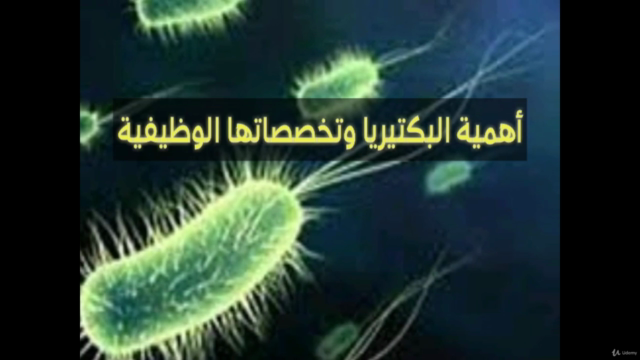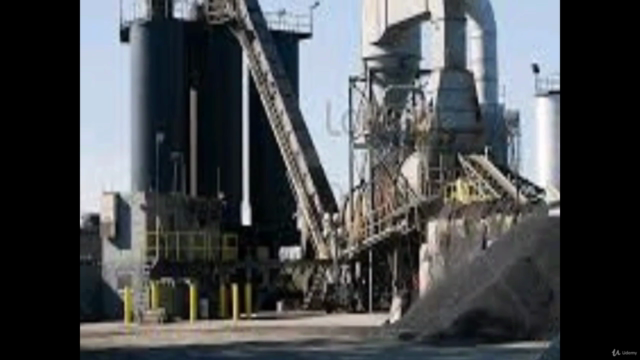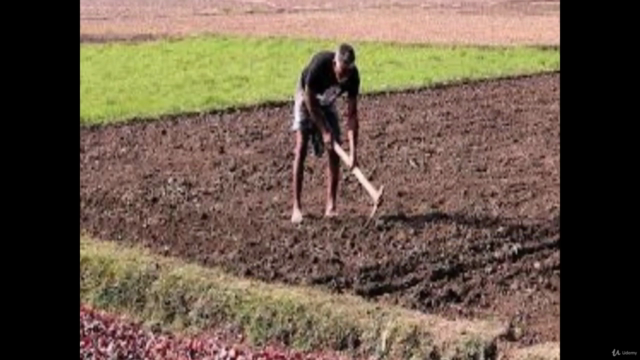الكيمياء في حياتنا : الكيميائي والزراعة

Why take this course?
Based on the information provided, the course "الكيمياء في حياتنا" (Chemistry in Our Lives) seems to focus on the integration of chemistry principles with agricultural practices. The target audience includes chemistry professionals working in the agricultural field, students from agricultural colleges, and those specializing in various branches of chemistry such as applied chemistry, biological chemistry, industrial chemistry, and agricultural chemistry.
Here is a structured outline for the course that incorporates all the points mentioned:
Course Title: الكيمياء في حياتنا (Chemistry in Our Lives) - Integrating Chemistry with Agriculture
Course Description: This course explores the vital role chemistry plays in agriculture and how it enhances food security, environmental sustainability, and economic growth. It is designed for chemistry professionals, students of agricultural sciences, and anyone interested in understanding the chemical aspects of agricultural practices, soil science, crop nutrition, and more.
Course Objectives:
- To understand the fundamental principles of chemistry that underpin agricultural processes.
- To explore the role of microorganisms, particularly bacteria and fungi, and their impact on soil health and plant growth.
- To examine the chemical composition of fertilizers, pesticides, and how they affect crop yields and soil fertility.
- To discuss the mechanisms of nutrient uptake by plants and the importance of fertilizer formulation.
- To understand the chemistry behind soil health, including soil pH, nutrient cycling, and pollution.
- To delve into the science of plant breeding and genetically modified organisms (GMOs) from a chemical perspective.
- To analyze agricultural practices that lead to sustainable crop production with minimal environmental impact.
- To discuss the latest technologies in agriculture, including precision farming, biotechnology, and nanotechnology, and their chemical implications.
Target Audience:
- Chemistry professionals working in the agricultural sector.
- Students from agricultural colleges and universities.
- Individuals with a background in chemistry, including applied chemistry, biological chemistry, industrial chemistry, and agricultural chemistry.
Course Structure:
-
Introduction to the Role of Chemistry in Agriculture
- Overview of agriculture's chemical aspects
- The importance of chemistry in ensuring food security
-
Microbiology in Soil and Plant Growth
- Bacteria and fungi in soil health
- Root exudates and microbial diversity
-
Fertilizers, Pesticides, and the Chemistry of Crop Production
- Types of fertilizers: organic vs. inorganic
- Mechanism of action of pesticides
-
Soil Chemistry and Its Impact on Crop Yields
- Soil pH and its influence on nutrient availability
- Nutrient cycles and soil health
-
Plant Breeding and Genetic Modification from a Chemical Angle
- Understanding plant genetics and biochemistry
- The role of chemistry in developing GMOs
-
Sustainable Agriculture Practices
- Eco-friendly farming methods
- Renewable resources and waste recycling
-
Cutting-Edge Technologies in Modern Agriculture
- Precision agriculture for crop optimization
- Biotechnology, nanotechnology, and their applications in agriculture
Methods of Teaching:
- Lectures and discussions led by the instructor
- Interactive workshops with hands-on activities
- Case studies on real-world agricultural practices
- Group projects to explore new agricultural technologies
- Guest lectures from industry experts
Assessment:
- Quizzes and exams to evaluate understanding of course material
- Practical assignments related to soil and plant analysis
- A final project where students apply chemical principles to address a real-world agricultural problem
This course aims to bridge the gap between chemistry and agriculture, providing participants with the knowledge and skills necessary to understand and improve agricultural practices through a chemical lens. It will enable them to contribute effectively to sustainable farming systems and innovate in the field of agriculture from the perspective of a chemist.
Course Gallery




Loading charts...